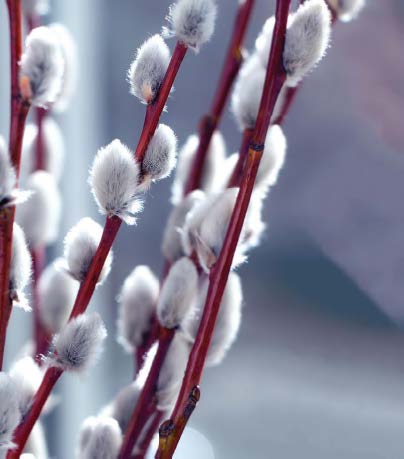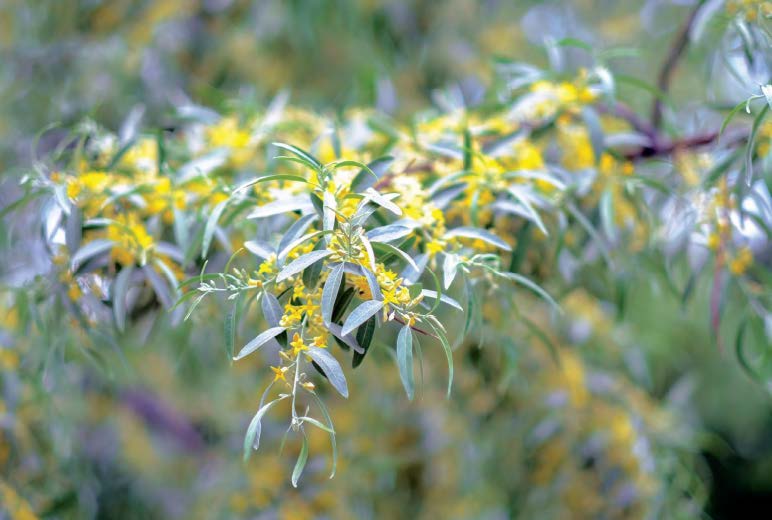
Pussy willow (above) was grown from clippings taken from a fellow gardener's tree, and wolf willow (below) was grown from clippings collected along a trout stream bank.
although we think that this was because the soil was too dry and lacking in decomposing wood. Our wild garden lacks some favorite wild species because we know that we don't have the right environmental conditions. Plants like yellow water lily (Nuphar lutea) and marsh marigold (Caltha palustris) require a pond of cool, untreated water, which we can't provide in our urban setting.
Like many large gardens, ours has some low, perennially damp spots that are ideal for propagating certain wild plants from cuttings. We've had success with willow and willow relatives using this method and now have wolf willow (Elaeagnus commutata) from clippings collected along a trout stream bank, plus a magnificent pussy willow tree (Salix discolor) grown from clippings taken from a stately tree belonging to a friendly fellow wild gardener.
Some wild plants run amok in the civilized surroundings and relatively fertile soil of an urban garden. The wolf willow threatens to occupy our whole garden with its suckering habit! We keep it, though, and just hack it back because we love the spicy, musky scent of its flowers. We could not keep up with the wild chokecherry (Prunus virginiana), which we had grown from pits that we saved from the fruit of a favorite heavy-yielding, large-fruit shrub located in a sandpit that was being cleared. We were ruthless with its suckers and

Photos, from top: Denis1978/Getty Images; Elenasfotos/Getty Images